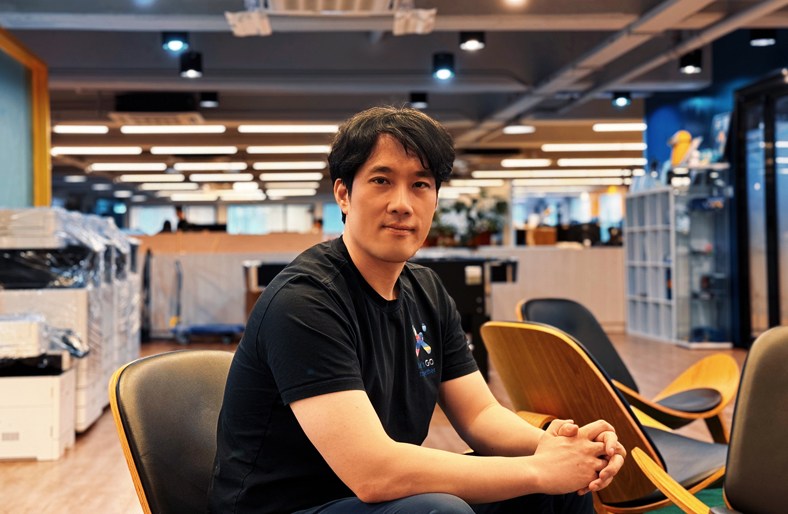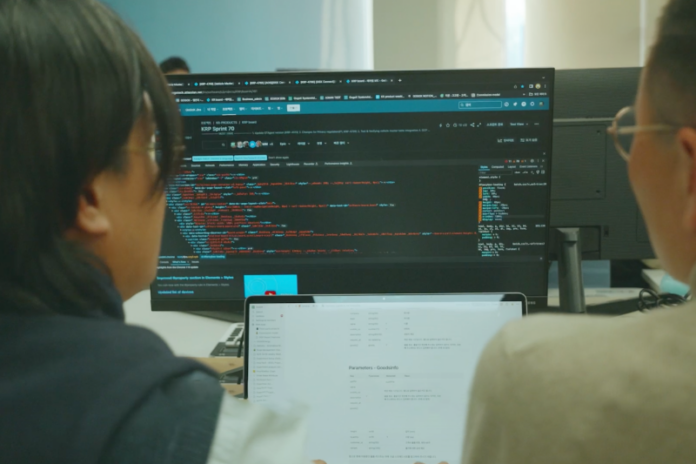In the logistics business, speed and efficiency dictate who survives and who doesn’t. This means longer waiting times for booking and deliveries are inexcusable, given the tools available for digital transformation.
Intra-city logistics platform GoGoX recognises this reality. To smooth out the wrinkles in their operations, the company — which operates in Hong Kong, Singapore, China, India, South Korea, and Vietnam — has turned to the hottest tech on the market right now: artificial intelligence.
Young Tae Do, Chief Technology Officer of GoGoX, sat down with Frontier Enterprise to discuss the company’s AI strategy and future plans for improvement.
Full throttle
According to the CTO, integrating AI into the company’s workflow was non-negotiable.
“We have embarked on developing three key AI-powered solutions aimed at transforming the way driver-partners and customers interact with our platform, driving new efficiencies that address challenges previously associated with last-mile delivery—from planning to execution, alignment with customer requirements and expectations, to labour shortage, among others,” Young stated.
The first use case the company integrated into its delivery platform was the Order Assignment (OA) program, which automatically assigns drivers their pickup and delivery assignments without human intervention.
“Based on data available in the system, which is accumulated over GoGoX’s 10 years of operations, the system matches drivers with specific job orders, routes, and customer experience history,” the executive explained.
Before, drivers could pick and choose orders at any time, which was inefficient. With the OA program, AI determines the most efficient route for deliveries, factoring in over 100 variables such as traffic congestion, weather, and road closures.
The system then matches specific delivery items with driver-partners, for example, if they have a history of delivering highly sensitive or expensive items, or if they received positive feedback from previous customer interactions.
Driver-partners also previously spent a lot of time bidding for delivery jobs, only to not get the job order in the end, thus not maximising their potential earnings, Young recalled.

“With OA, all they need to do is trust the system and fulfil the assigned job orders as it calculates for them the most efficient way to do more in less time, ensuring higher earnings. This functionality drives better workflow processes that ultimately unlock better customer service and experience,” he said.
The OA functionality has recently been introduced in Hong Kong and is being fine-tuned for later release in other Asian markets, the CTO added.
Meanwhile, the company’s second AI use case is centred on Resource Allocation Optimisation (RAO), which automatically allocates resources based on the number of job orders received, locations, kinds of items to be delivered, and the most efficient routes the drivers could take.
Last but not the least is an AI virtual assistant, which includes the deployment of chatbots using popular messaging platforms and voice assistants to enable higher support levels 24/7.
Some of the AI virtual assistant’s tasks include answering customer queries, requesting quotations, resolving complaints, accepting orders 24/7, providing multi-language support, and generating relevant photos and visuals.
Data-driven
Since the success of AI models rely on both the quantity and, more importantly, quality of data being fed, GoGoX has ensured that it can properly leverage its decade’s worth of assets.
“Diverse, representative data enables AI algorithms to learn patterns from past experiences and make predictions. This improves decision-making in real time and allows the algorithms to adapt to different scenarios. Ultimately, it shapes their ability to perform specific tasks accurately and more efficiently, thus improving productivity.” For instance, in our business, examples include matching specific job orders with driver-partners, the routes they take when they go home, their ‘history’ with specific customers, and the like,” Young stated.
To ensure data privacy and security during AI training, the company anonymises personally identifiable information (PII), implements access controls, uses encryption techniques, and adheres to privacy regulations, such as GDPR, the Chief Technology Officer shared.
“Additionally, our development team strives to adhere to industry standards in data handling best practices, such as employing secure data transfer methods to protect sensitive information throughout the AI development lifecycle,” he continued.
Driving more value
With AI penetrating almost every facet of the enterprise, one recurring concern is whether the technology will one day replace humans.
For GoGoX, the tasks for AI and humans are clearly delineated.
“Striking a balance between automation and human decision-making is done by automating certain routine tasks like route optimisation, resource allocation, demand prediction, and responding to FAQs. Meanwhile, human decision-making can be retained for complex situations such as customised operational workflow, customer interactions, and unforeseen challenges,” Young explained.
GoGoX has implemented a collaborative approach, blending AI’s efficiency with human expertise to manage nuanced scenarios, which, according to Young, ensures a more adaptive and effective operational process. In this model, AI handles routine inquiries while more complex customer issues, beyond the scope of bots or AI virtual assistants, are automatically routed to human agents.
In addition to AI, the CTO foresees these three technologies affecting their business:
- The Internet of Things for real-time tracking.
- Blockchain for secure and transparent transactions.
- Robotics for automated deliveries.
“Automotive technology such as electric vehicles and autonomous driving is another area of interest for logistics. Like AI, when we can adopt these advancements at scale and with zero-error confidence, it can change the way logistics operate and contribute to enhancing efficiency, transparency, and overall customer satisfaction in the delivery market,” Young concluded.
















